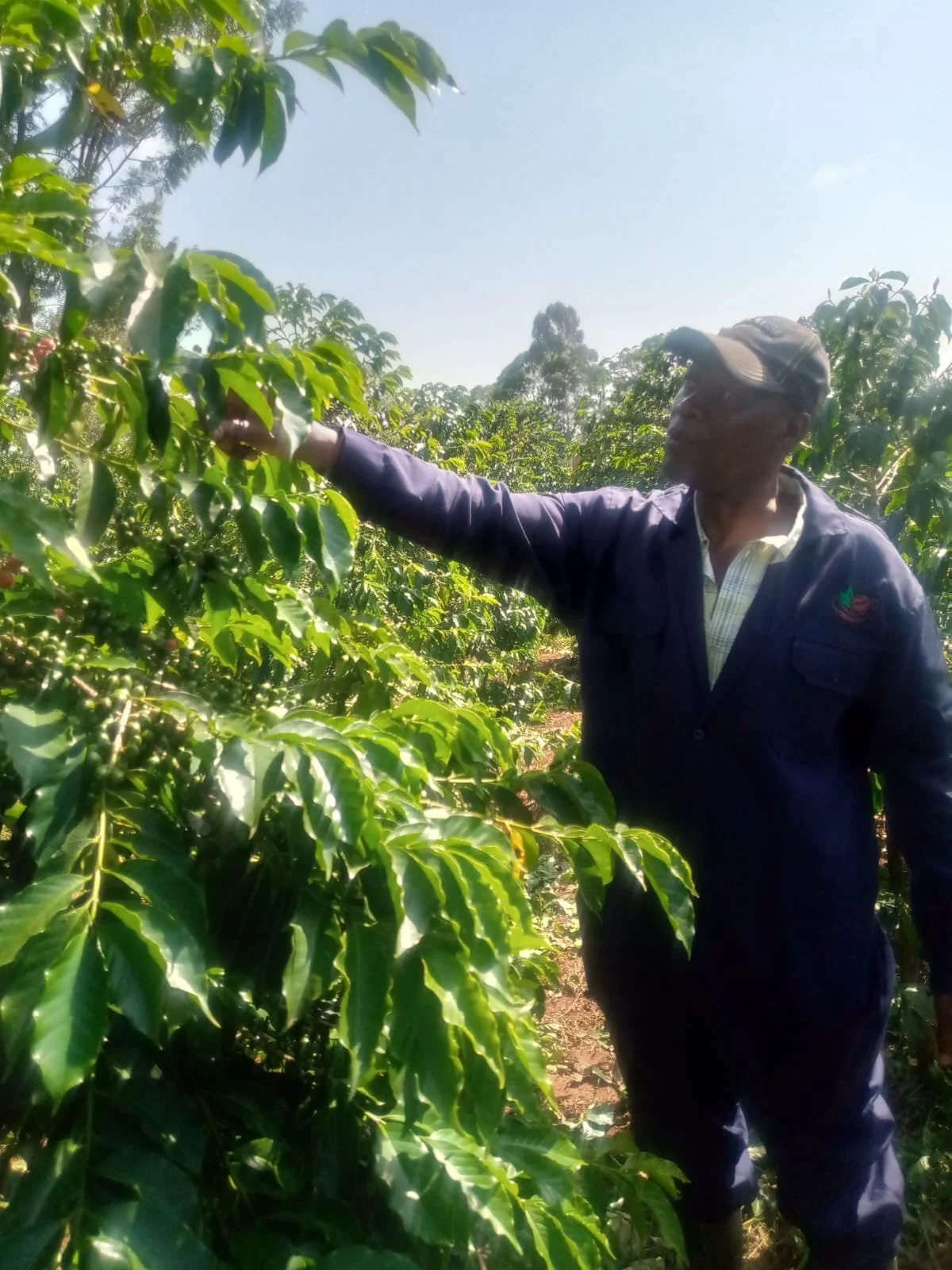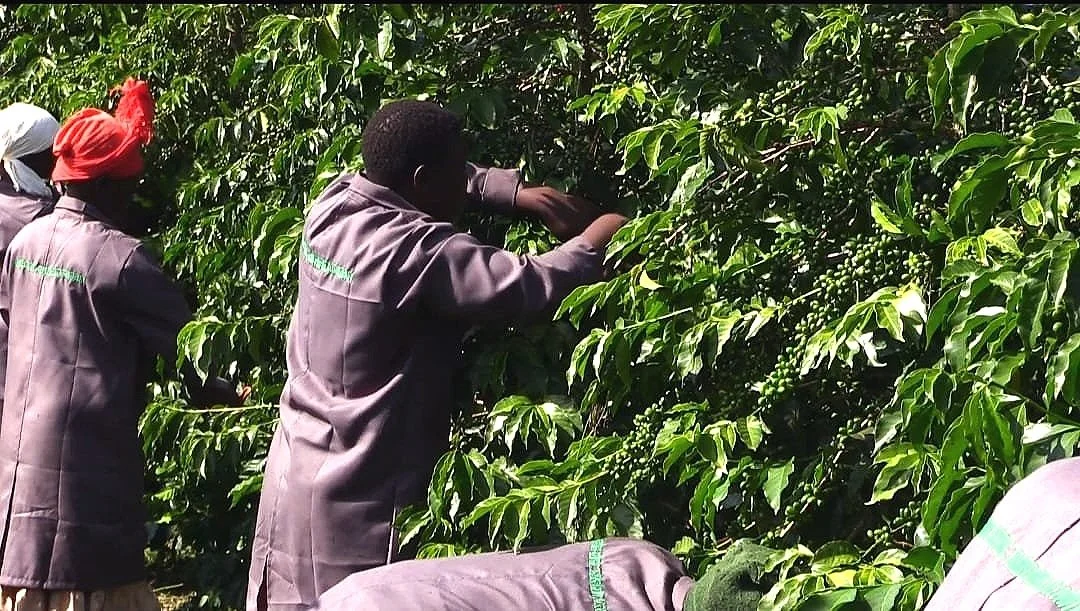THIS SOPHIE’S CHOICE WASN’T DIFFICULT
David had a career with Kenyan Government working on travel protocol, securing officials visa and other travel document within National Assembly for 30 years. David has strived to support his community in all these years one way or the other. One of the things he used to was support youth in local football tournaments by rewarding the winning team monetarily. He used to sponsor these tournaments and organize various events especially during Christmas to raise the spirits of his community. After his streak at the National Assembly, his local community encouraged him to run for Member of Parliament. He was elected and held his seat for Saboti Constituency in Kitale for 5 years.
Although he was attending his calling in politics and served his community, agriculture was always part of the Wafula family. His father used to work as a chef for white settlers back in the days. He was then promoted to farm manager which he continued to do even after Kenyan government secured it’s land back and redistributed to people after British left. His family used to grow maize and David remembers helping out during weekends, holidays so they could get some more money. This money especially was useful to send children to school or buy school supplies.
When David bought a farm of 100 acres that was dedicated to grow sugar cane, maize; he was still working in Nairobi and wasn’t around to tend to the farm. It wasn’t until his daughter who was studying to be an air hostess came to visit the farm, they got this idea to plant coffee. She was doing courses on hospitality and she eventually started working as a Barista in Artcaffe.
They didn’t have the know how and lacked training on how coffee needed to be grown.
Enter Gloria.
She pointed them in the right direction and connected them with an expert from research institute. David quickly learnt the ropes and his 10 acres of coffee quickly became 30. Today it is also more than that for Sophie and her family. It has turned into an act of devotion. David wants to spend all his time working at his coffee farms. He wants to get his daughter involved so she can be in charge of marketing all their coffees in the future. They have been employing youth and women year around in their coffee farms.
Economic empowerment has become a ripple effect in their community because of coffee trade.
CULTIVARS
Ruiru 11, Batian
elevation
1,500 meters
NOTABLE
They employ 150 workers during harvest season out of which 85% are women and youth. The income helps families send their children to school. They intercrop coffee with Macadamia, Avocado, sugarcane. They rear cattle for dairy production. They perform soil analysis to understand the nutrient composition. Animal waste like cow dung is mixed with coffee pulp to prepare manure. They also apply foliar to combat diseases and pests especially CBD.
PROCESSING
Natural: Coffee cherries are harvested at their ripest point, selected and separated for lights, heavy. They are fermented for 72 hours and left to dry until they achieve desired moisture requirements. Lazaro estate is also open to working with clients that want them to develop exclusive processes with their coffees. Since it is first year of direct trade, they are waiting to understand how these coffee perform to either repeat or revamp processing accordingly.
TASTIFY™ CUPPING NOTES
2024 LANDED SAMPLES
-
The price you pay for Sophie natural p/kg. We agreed on this price directly with the farmers, disregarding the volatile US Coffee C price.
-
Since 2024 the new regulations in Kenya, coffee moves differently through the value chain. Here farmgate refers to the FOT contract Sakami farmers have received for their produce that also includes freight charges to drive it to the milling facility. The representative pie chart is for the natural coffees. This price covers farm gate and other costs farmers have incurred until dry parchment stage .
-
The coffee is then taken to the milling facility where farmers are charged for the milling, bagging them in grain pro. Additionally an export supervision fee is included in this category to capture the reality of having our partner Stean in cooperation with our farmers oversee the milling process. A standard fee that is split across the entire volume is added to the exporting costs.
-
International shipping from Mombasa, Kenya to Rotterdam, Netherlands. It is inclusive of freight, customs, insurance and warehousing costs.
-
Average financing cost owed to (mostly social) lenders. This ensures immediate payment to the farmers when the coffee leaves the farm or port.
-
A standard TSU premium on all coffees designated exclusively to accelerate farmers’ own regenerative agriculture projects. .Read more about the regenerative projects done by Sophie here. (Link coming soon).
-
This Side Up compensation for spending time and resources importing this coffee. Our work includes year-round contact with producers, managing export, shipping, import, warehousing, grading, sampling, finding and keeping roasting partners for Sakami. € 1,65 is This Side Up’s Model 1 markup. For a full overview of our modular margin construction, see the Trade Models page
Contact DAVID lazaro
David is fluent in English and Swahili. He can be directly contacted via phone or whatsapp. He is enthusiastic to talk about everything to do with their estate.
TEL : +254 720 678540
Photo gallery
You may use these videos freely to promote Sophie’s coffee amongst your customers.




















